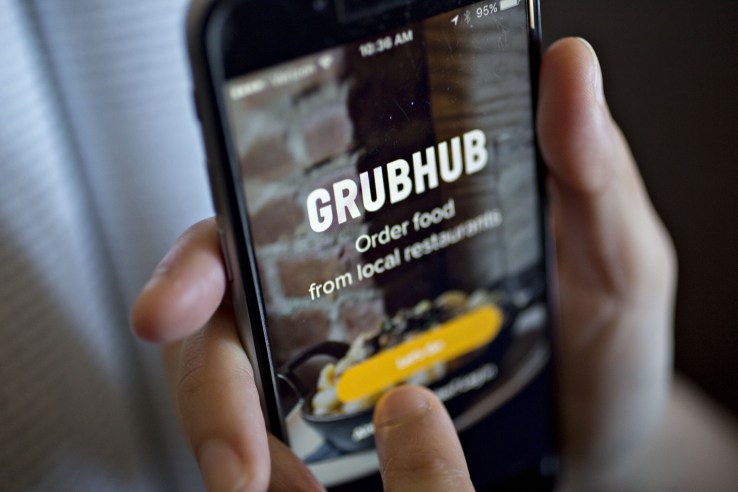GrubHub trial could have major implications for the gig economy

Next week, GrubHub will face two of its former drivers in court, which could set a precedent for future cases around the 1099, gig economy. The trial, which is the first of its kind in California, looks to answer the question many in the tech industry have had for years: Should a worker for on-demand companies be classified as an independent contractor or as a W-2 employee?
The suit, which was originally filed in 2015, alleges GrubHub misclassified Raef Lawson and Andrew Tan as independent contractors and, in doing so, violated the California Labor Code. Lawson and Tan are seeking reimbursement for underpaid wages, expenses and other damages.
Lawson v. GrubHub is being argued by Shannon Liss-Riordan, a lawyer who has been involved in several gig economy-related lawsuits. In April, Liss-Riordan reached a $5 million settlement on behalf of her clients in a suit against DoorDash regarding this same issue over independent contractors.
Last year, Uber settled two class-action lawsuits — one in California and one in Massachusetts — that argued Uber should classify its drivers as employees instead of independent contractors. As part of the $100 million settlement, both sides agreed that drivers would remain independent contractors.
The GrubHub suit, while very similar in nature to the Uber and DoorDash cases, is the first of these W-2 versus 1099 cases to make it to trial.
Those who work for Munchery and Instacart, startups that are still around, are classified as W-2 workers. This means they’re eligible for, among other things, gas and mileage reimbursement and health insurance. Bringing on W-2 workers also likely means better retention and therefore less money spent on recruiting and training people. And finally, with W-2 employees, employers have to, according to the IRS, “withhold income taxes, withhold and pay Social Security and Medicare taxes, and pay unemployment tax on wages paid to an employee.”
People who work as 1099 contractors, by contrast, can be their own bosses, meaning they can set their own schedules, and decide when, where and how much they want to work. Being a 1099 contractor can also be a solid, lucrative side-hustle. Instead of being tied down to one company, you could theoretically drive for both Lyft and Uber, deliver food for Caviar and Postmates, and then, if you have some free time, fix a door for someone via TaskRabbit. And employers can avoid paying taxes, overtime pay, benefits and workers’ compensation.
It’s worth noting that companies like Shyp, Luxe and Sprig, which all made a big deal about switching its workers from 1099 contractors to W2 employees, have all shut down. Ceasing operations is typically a multi-faceted decision, but it’s an interesting commonality between those startups.
If the case goes in favor of Lawson and Tan, startups like Uber, Lyft, Postmates, DoorDash and the lot may eventually have to switch their employment classifications. For companies like Uber and Lyft, which have 600,000 active drivers (have taken at least four trips in past month) in the U.S. and 700,000 drivers, respectively, the cost of reclassifying all of the drivers would be steep.
In 2015, a Recode analysis estimated it would cost Uber $209 million to reclassify 45,000 drivers in California. As companies like Uber, Lyft and Postmates are still trying to reach profitability, the costs of reclassifying their workers could have a negative impact on their respective bottom lines.
Lawson v. GrubHub comes about a month after GrubHub purchased food delivery service Eat24 from Yelp for $287.5 million. The trial begins Tuesday, Sept. 5 and will be overseen by U.S. Magistrate Judge Jacqueline Corley.
Featured Image: Andrew Harrer/Bloomberg via Getty Images/Getty Images